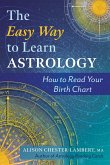Throughout philosophical history, philosophers have employed the notion of 'tragedy' in order to question the limits of their practice. At times tragedy is called upon to raise themes that philosophy tends to overlook, such as suffering, loss, and death. At other times tragedy is used more radically; to identify the tendency of philosophy to transgress the limits of the knowable. Some philosophers employ tragedy as a non-cognitive 'idea' (if such a thing is possible) with which to disrupt the conceptual boundaries between individual autonomy and the shared dimensions of ethical life. Others evoke tragedy in order to explore the creativity of artistic genius and the capacity of human thought to bring new form into being
Hinweis: Dieser Artikel kann nur an eine deutsche Lieferadresse ausgeliefert werden.
Hinweis: Dieser Artikel kann nur an eine deutsche Lieferadresse ausgeliefert werden.








